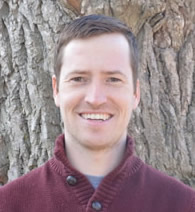EES Departmental Seminar: Science Atlantic – Atlantic Geoscience Society – Speaker Tour 2023-24 – Ted Matheson
Ted Matheson
Assistant Professor
Cape Breton University
Title: The sedimentary record of oxygen and the evolution of animals: revising the Phanerozoic paradigm using ironstones and more!
Abstract: Earth’s oceans and atmosphere have not always been as rich in oxygen as they are today. At the broadest scale, Earth has undergone a series of steps and progressive increases from a completely anoxic planet to a well-oxygenated one capable of supporting a diverse biosphere. Understanding this oxygenation history is integral to deciphering the importance of oxygen in the evolution of complex multicellular life such as animals. Sedimentary rocks, both the facies and attributes of the rocks themselves, as well as geochemical proxies preserved within them, serve as the archive for this ancient Earth system evolution.
One temporal interval of particular importance is the early Paleozoic (ca. 539 to 419 million years ago), a time of two of Earth’s largest biodiversification events. It was long believed that a major step towards full oceanic oxygenation occurred during the Neoproterozoic Oxygenation Event, prior to the Paleozoic, leading to a traditional interpretation of early Paleozoic oceans that were well oxygenated, as was thought necessary to support metazoan biodiversification. However, it is increasingly apparent that earth scientists’ knowledge of the oxygenation of our oceans during this period is incomplete. Over the last decade, new data has argued the traditionally held narrative. We now believe that the early Paleozoic was a time of heterogenous and relatively low marine oxygen concentrations, with present-day levels not reached until the late Paleozoic. The record, details, and significance of this drawn-out oxygenation are not fully understood. One of the newest redox proxies shedding light on this topic lies in understanding the genesis of Paleozoic metalliferous sedimentary rocks. In this talk, I’ll combine a holistic overview of this enigmatic interval with a focus on the unique interpretations that have come out of the recent sedimentologic, stratigraphic, and geochemical study of ironstones, marine red beds, and manganiferous carbonate in Canada and globally.
| Bio: Ted Matheson is an Assistant Professor of Geology at Cape Breton University in Sydney and an Adjunct Professor at Queen’s University in Kingston, Ontario. Ted joined the faculty at CBU after a PhD at the University of Nebraska-Lincoln and postdoctoral fellowships at Queen’s University and with Nutrien Potash in Saskatchewan. His research interests lie in using sedimentary rocks to reconstruct ancient Earth environments with a focus on the evolution of the oceans and climate. |   |
Time
Location
Milligan Room, 8th Floor Biology-Earth Sciences Wing, Life Sciences Centre, Dalhousie University
